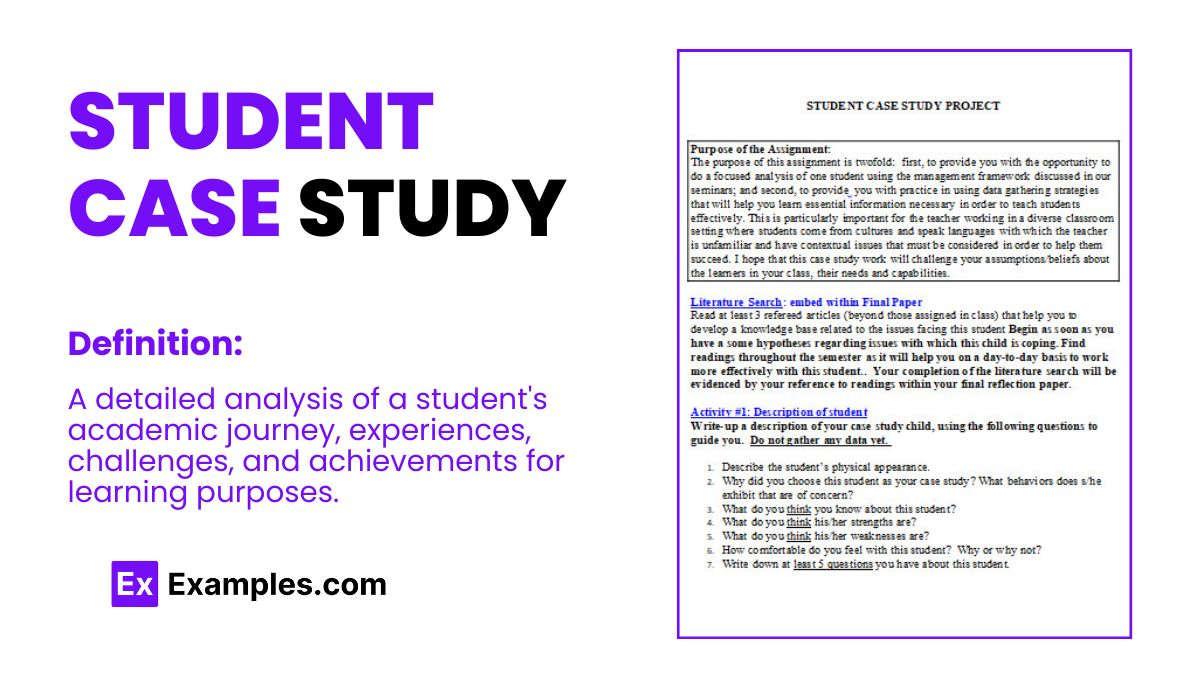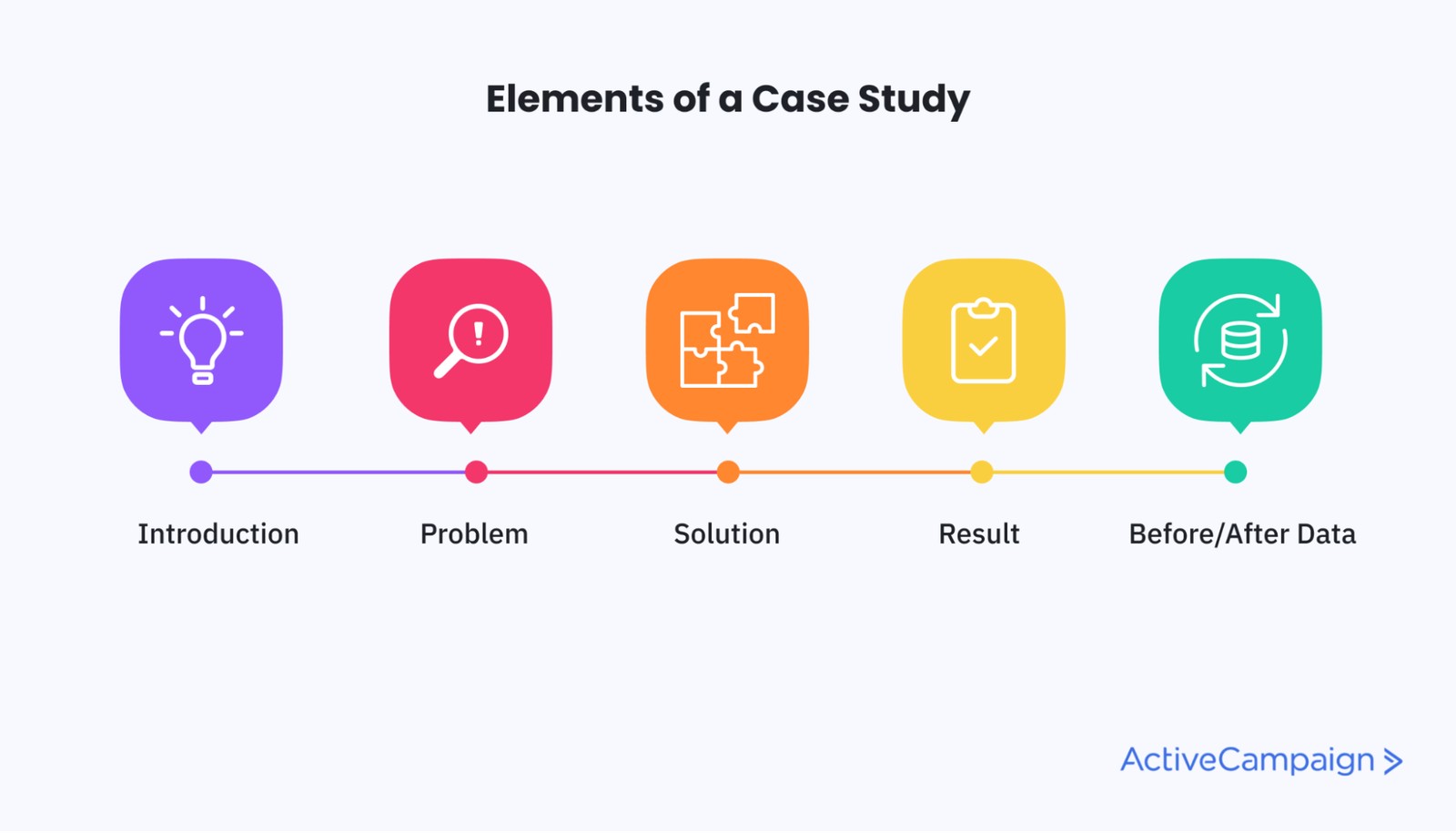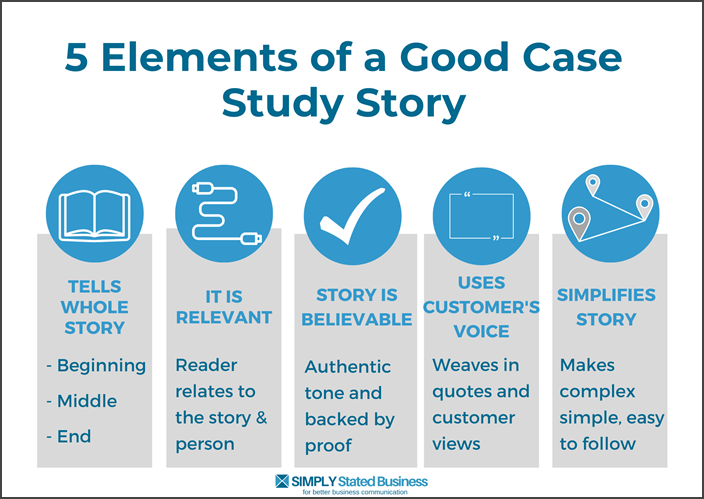Marketing case studies offer invaluable insights into successful strategies, creative campaigns, and innovative approaches that have shaped industries. They serve as a source of inspiration and learning for marketers, showcasing how brands have overcome challenges, connected with audiences, and achieved remarkable results. From viral campaigns to data-driven strategies, these real-world examples highlight the power of storytelling, adaptability, and customer-centric thinking. In this article, we explore some of the most compelling marketing case studies that have left a lasting impact, revealing the lessons and tactics that can be applied to modern marketing challenges. Discover the stories behind the success and what makes them stand out.
What Are Some of Your Favorite Marketing Case Studies?
Marketing case studies provide valuable insights into successful strategies and campaigns. Below, we explore some of the most impactful and inspiring examples in the industry.
See Also What's the most successful free gift with purchase promotion you've run?
What's the most successful free gift with purchase promotion you've run?1. Nike's Just Do It Campaign
Nike's Just Do It campaign is one of the most iconic marketing strategies in history. Launched in 1988, it transformed Nike into a global brand. The campaign focused on emotional storytelling, featuring athletes overcoming challenges. This approach resonated with a wide audience, boosting Nike's market share from 18% to 43% within a decade.
| Key Element | Impact |
|---|---|
| Emotional Storytelling | Increased brand loyalty |
| Celebrity Endorsements | Expanded global reach |
| Consistent Messaging | Boosted sales by 31% |
Coca-Cola's Share a Coke campaign personalized their bottles by printing popular names on them. This strategy encouraged customer engagement and social sharing. The campaign led to a 2% increase in U.S. sales and over 500,000 photos shared on social media with the hashtag ShareACoke.
See Also What's the most successful free gift with purchase promotion you've run?
What's the most successful free gift with purchase promotion you've run?| Key Element | Impact |
|---|---|
| Personalization | Increased customer interaction |
| Social Media Integration | Enhanced brand visibility |
| Emotional Connection | Boosted sales and engagement |
3. Apple's Get a Mac Campaign
Apple's Get a Mac campaign, launched in 2006, used humor and simplicity to highlight the differences between Macs and PCs. The ads featured direct comparisons and relatable scenarios, which helped Apple increase its market share by 12% during the campaign's run.
| Key Element | Impact |
|---|---|
| Humor and Simplicity | Improved brand perception |
| Direct Comparisons | Increased market share |
| Relatable Scenarios | Enhanced customer trust |
4. Old Spice's The Man Your Man Could Smell Like Campaign
Old Spice's The Man Your Man Could Smell Like campaign revitalized the brand by targeting a younger audience. The humorous and quirky ads went viral, resulting in a 125% increase in sales and over 40 million YouTube views in the first month.
See Also Anyone Having Success Running Ads for Real Estate Agents/Brokers?
Anyone Having Success Running Ads for Real Estate Agents/Brokers?| Key Element | Impact |
|---|---|
| Humor and Creativity | Revitalized brand image |
| Viral Marketing | Massive social media engagement |
| Targeted Messaging | Increased sales significantly |
5. Dove's Real Beauty Campaign
Dove's Real Beauty campaign challenged beauty stereotypes by featuring women of all shapes, sizes, and ages. This authentic approach resonated with consumers, leading to a 600% increase in sales within the first two months and widespread media coverage.
| Key Element | Impact |
|---|---|
| Authenticity | Strengthened brand trust |
| Inclusivity | Expanded customer base |
| Emotional Appeal | Boosted sales and loyalty |
What are some examples of case study studies?

 Does Anyone Here Run a Marketing Consultancy? What's It Like?
Does Anyone Here Run a Marketing Consultancy? What's It Like?Business Case Studies
Business case studies are widely used to analyze real-world scenarios and decision-making processes within organizations. They often focus on companies facing challenges or implementing innovative strategies. Examples include:
- Apple Inc. - A study on how Apple transformed its business model and became a leader in the tech industry.
- Netflix - An analysis of Netflix's shift from DVD rentals to streaming services and its impact on the entertainment industry.
- Tesla - A case study exploring Tesla's disruptive approach to the automotive industry and its focus on electric vehicles.
Medical Case Studies
Medical case studies are essential for understanding patient care, treatment outcomes, and medical breakthroughs. They often document rare conditions or innovative treatments. Examples include:
- COVID-19 - Studies on patient recovery, vaccine development, and the virus's impact on global health systems.
- Cancer Treatment - Case studies on personalized medicine and immunotherapy for cancer patients.
- Rare Diseases - Documentation of unique cases, such as progeria or fibrodysplasia ossificans progressiva (FOP).
Educational Case Studies
Educational case studies examine teaching methods, student outcomes, and institutional policies. They provide insights into effective learning strategies. Examples include:
- Flipped Classroom Model - A study on how reversing traditional teaching methods improves student engagement.
- Online Learning - Analysis of the effectiveness of virtual classrooms during the pandemic.
- Inclusive Education - Case studies on integrating students with disabilities into mainstream classrooms.
Environmental Case Studies
Environmental case studies focus on ecological issues, conservation efforts, and sustainability practices. They highlight challenges and solutions in environmental management. Examples include:
- Deforestation in the Amazon - A study on the causes and consequences of deforestation and efforts to combat it.
- Renewable Energy Projects - Analysis of solar and wind energy initiatives in different regions.
- Plastic Pollution - Case studies on the impact of plastic waste on marine ecosystems and mitigation strategies.
Psychological Case Studies
Psychological case studies explore human behavior, mental health, and therapeutic interventions. They often provide deep insights into individual experiences. Examples include:
- Phineas Gage - A famous case study on brain injury and its impact on personality and behavior.
- Genie (The Feral Child) - A study on language acquisition and social isolation in a child raised in extreme neglect.
- PTSD in Veterans - Case studies on the psychological effects of combat and treatment approaches for veterans.
What are case studies in marketing?

What Are Case Studies in Marketing?
Case studies in marketing are detailed analyses of specific campaigns, strategies, or projects that highlight the successes, challenges, and outcomes of a particular marketing effort. They serve as a tool to demonstrate how a product, service, or strategy was implemented and the results it achieved. Case studies often include:
- Background information about the company or campaign.
- Objectives and goals of the marketing initiative.
- Strategies and tactics used to achieve those goals.
- Results and measurable outcomes, such as increased sales or brand awareness.
Why Are Case Studies Important in Marketing?
Case studies are essential in marketing because they provide real-world examples of how strategies can be applied effectively. They help marketers:
- Build credibility by showcasing proven results.
- Educate potential clients on the value of a product or service.
- Highlight problem-solving capabilities and innovative approaches.
How to Create an Effective Marketing Case Study
Creating an effective marketing case study involves a structured approach to ensure clarity and impact. Key steps include:
- Selecting a relevant example that aligns with your target audience's interests.
- Gathering data and insights to support your findings.
- Presenting the information in a compelling narrative format.
- Including visuals like charts, graphs, or images to enhance understanding.
Types of Marketing Case Studies
There are several types of marketing case studies, each serving a unique purpose. Common types include:
- Product-focused case studies, which highlight the benefits and performance of a specific product.
- Customer success stories, showcasing how a client achieved their goals using your services.
- Industry-specific case studies, tailored to demonstrate expertise in a particular sector.
Benefits of Using Case Studies in Marketing Campaigns
Incorporating case studies into marketing campaigns offers numerous advantages, such as:
- Enhancing trust by providing tangible evidence of success.
- Differentiating your brand from competitors through unique stories.
- Improving conversion rates by addressing potential customer concerns with real-life examples.
Which of the following is a good example of a case study?

What Defines a Good Case Study?
A good case study is defined by its ability to provide a detailed analysis of a specific situation, event, or individual. It should include:
- Clear objectives: The purpose of the case study should be well-defined and focused.
- Relevant data: It must include accurate and pertinent information to support the analysis.
- Real-world application: The case study should offer insights that can be applied to similar situations.
Characteristics of an Effective Case Study
An effective case study typically exhibits the following characteristics:
- In-depth research: It involves thorough investigation and data collection.
- Structured narrative: The case study should have a logical flow and be easy to follow.
- Problem-solving focus: It should highlight challenges and provide solutions or lessons learned.
Examples of Well-Constructed Case Studies
Some examples of well-constructed case studies include:
- Business case studies: Analyzing a company's strategy or market performance.
- Medical case studies: Examining patient treatment and outcomes.
- Educational case studies: Exploring teaching methods and their effectiveness.
How to Identify a Strong Case Study
To identify a strong case study, look for the following elements:
- Credible sources: The information should come from reliable and authoritative references.
- Comprehensive analysis: It should cover all relevant aspects of the topic.
- Practical implications: The findings should be actionable and applicable in real-world scenarios.
Common Mistakes to Avoid in Case Studies
When creating or evaluating a case study, avoid these common mistakes:
- Lack of focus: The case study should not deviate from its main objective.
- Insufficient data: Ensure that all claims are supported by adequate evidence.
- Overgeneralization: Avoid making broad conclusions that cannot be substantiated.
What are good case studies?

What Defines a Good Case Study?
A good case study is defined by its ability to provide a comprehensive analysis of a specific situation, problem, or project. It should be well-structured, engaging, and offer actionable insights. Key characteristics include:
- Relevance: The case study should address a topic or issue that is pertinent to the target audience.
- Clarity: The information presented should be clear, concise, and easy to understand.
- Evidence-Based: It should include data, facts, and real-world examples to support its conclusions.
Why Are Case Studies Important?
Case studies are important because they provide a practical understanding of theoretical concepts. They help in:
- Problem-Solving: Offering solutions to real-world problems by analyzing past scenarios.
- Decision-Making: Assisting stakeholders in making informed decisions based on proven outcomes.
- Learning and Development: Serving as educational tools for students, professionals, and organizations.
How to Structure a Case Study Effectively
An effective case study structure ensures that the information is presented logically and is easy to follow. Key components include:
- Introduction: Briefly introduce the subject, context, and purpose of the case study.
- Problem Statement: Clearly define the issue or challenge being addressed.
- Analysis: Provide a detailed examination of the problem, including data and evidence.
- Solution: Present the proposed or implemented solution.
- Conclusion: Summarize the findings and their implications.
Examples of Successful Case Studies
Successful case studies often come from industries like business, healthcare, and technology. Examples include:
- Apple's Marketing Strategy: Analyzing how Apple revolutionized its marketing approach.
- Netflix's Business Model: Exploring the shift from DVD rentals to streaming services.
- COVID-19 Vaccine Development: Detailing the rapid development and distribution of vaccines.
How to Choose a Topic for a Case Study
Choosing the right topic is crucial for a compelling case study. Consider the following factors:
- Relevance: Ensure the topic is significant to your audience or industry.
- Uniqueness: Select a topic that offers a fresh perspective or unique insights.
- Availability of Data: Make sure there is sufficient data and information to support your analysis.
Frequently Asked Questions from Our Community
What are some of the most impactful marketing case studies in recent years?
One of the most impactful marketing case studies in recent years is the Dove Real Beauty campaign. This campaign challenged traditional beauty standards by featuring real women of all shapes, sizes, and ages, rather than professional models. The campaign not only boosted Dove's sales but also sparked a global conversation about beauty standards. Another notable example is the Old Spice The Man Your Man Could Smell Like campaign, which revitalized the brand by targeting both men and women with humorous and memorable ads. These campaigns demonstrate the power of emotional connection and creativity in marketing.
How do successful marketing case studies leverage storytelling?
Successful marketing case studies often leverage storytelling to create a deeper connection with their audience. For instance, the Nike Just Do It campaign uses storytelling to inspire and motivate individuals by showcasing real-life stories of athletes overcoming challenges. Similarly, the Airbnb Belong Anywhere campaign focuses on the stories of hosts and travelers, emphasizing the idea of belonging and community. By using storytelling, these brands are able to humanize their message and make it more relatable, which in turn drives engagement and loyalty.
What role does data play in creating effective marketing case studies?
Data plays a crucial role in creating effective marketing case studies by providing insights into consumer behavior and campaign performance. For example, the Coca-Cola Share a Coke campaign used data to identify the most popular names in different regions, which were then printed on Coke bottles. This personalized approach led to a significant increase in sales and social media engagement. Additionally, data allows marketers to measure the success of their campaigns, identify areas for improvement, and make data-driven decisions for future strategies.
Certainly! The ALS Ice Bucket Challenge is a prime example of a marketing case study that used social media effectively. This viral campaign encouraged participants to pour a bucket of ice water over their heads, share the video on social media, and nominate others to do the same. The campaign raised millions of dollars for ALS research and significantly increased awareness of the disease. Another example is the Wendy's Twitter Roasts, where the fast-food chain used witty and humorous responses to engage with followers and competitors on Twitter. This approach not only boosted Wendy's social media presence but also reinforced its brand personality as bold and fun.
Leave a Reply


Articles of interest